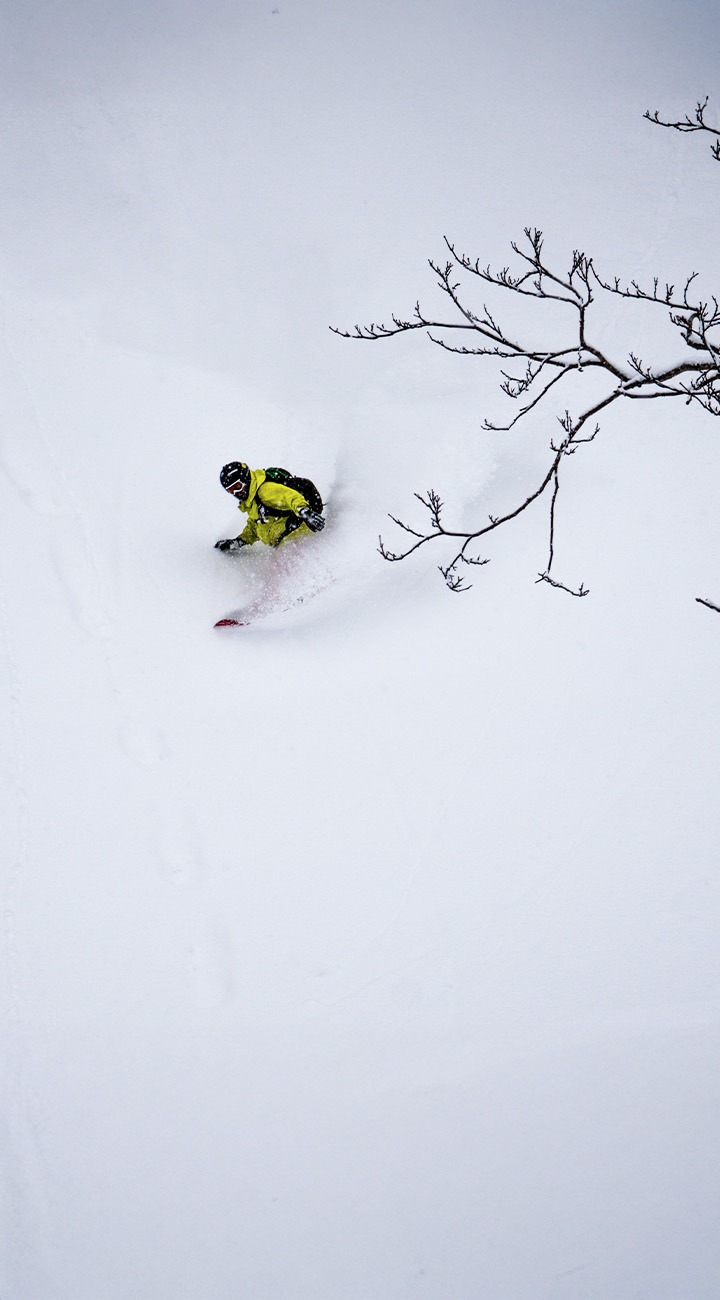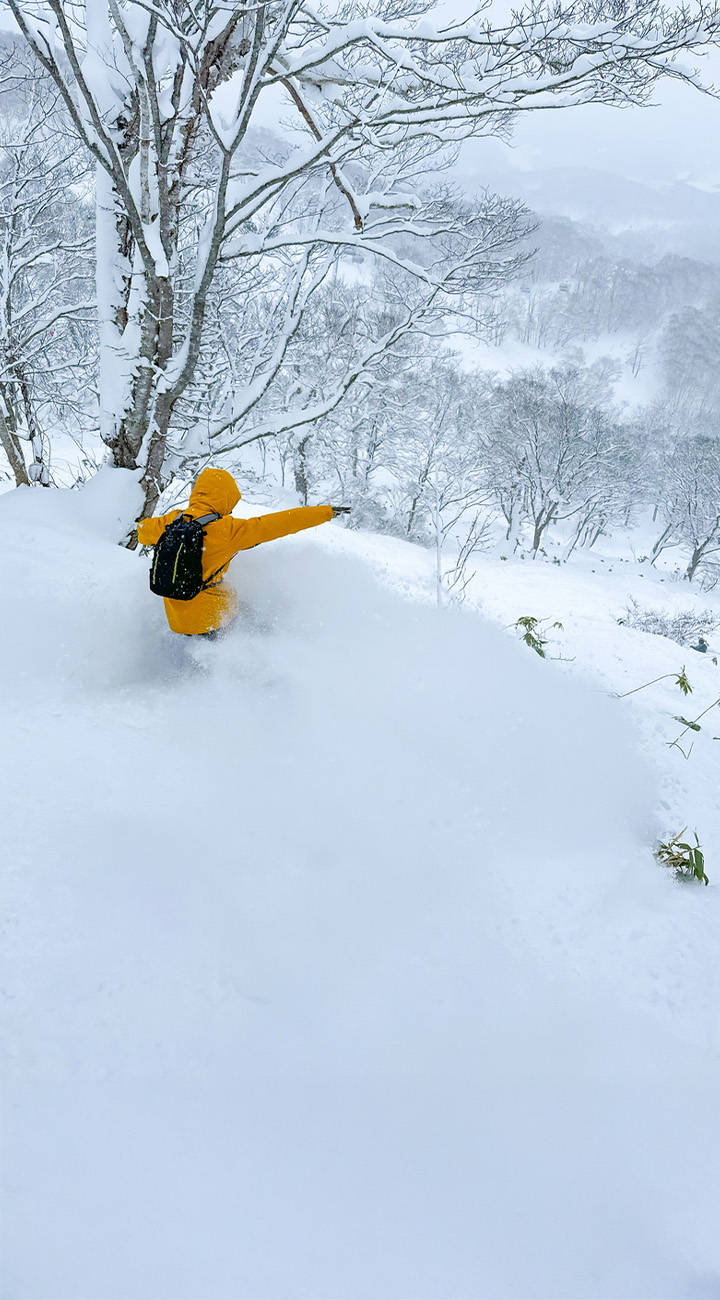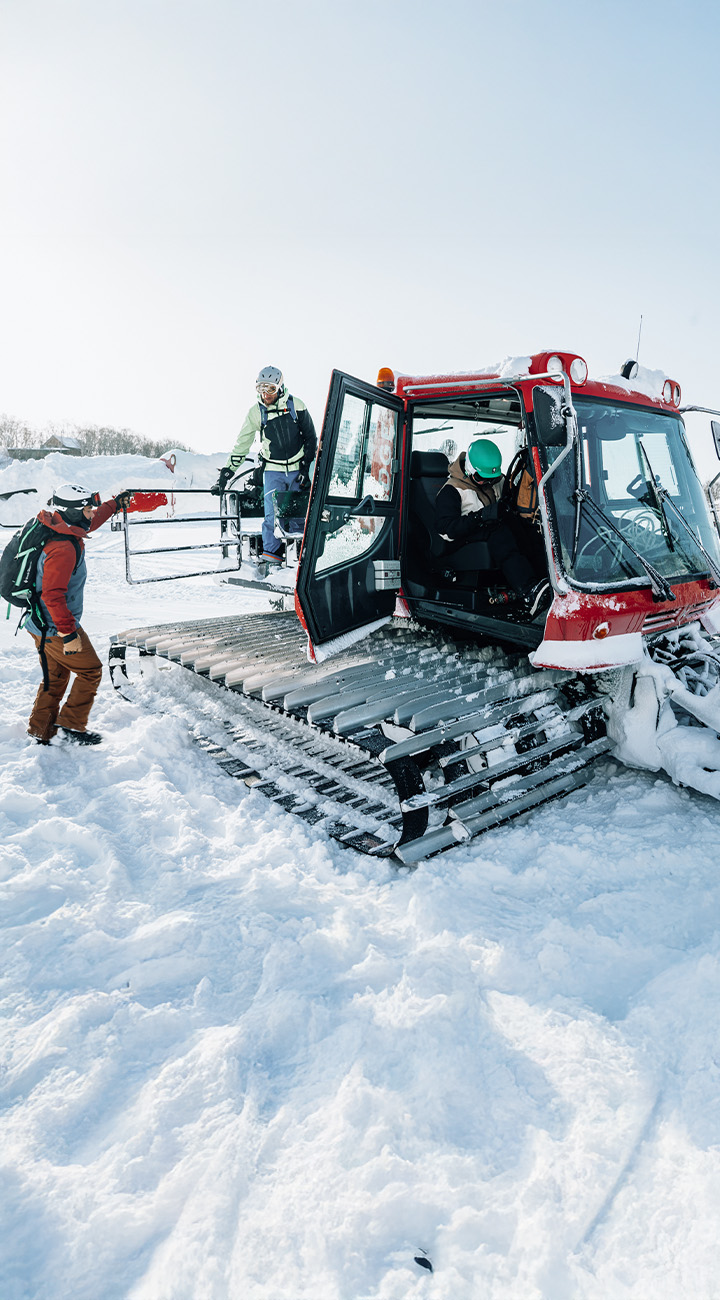Ski and Snowboard Travel Insurance Winter 2025/2026
Last updated: October 2025
Getting comprehensive travel insurance that covers skiing and snowboarding can be complex, but it’s essential for your safety and financial protection. This guide explores several ski and snowboard travel insurance options avaliable for winter 2025/2026, helping you find the perfect policy for your off-piste adventures.
What is off-piste and backcountry skiing and snowboarding?
Piste is a French term that is better known as a “trail”, “run” or “marked slope” in English speaking countries. A piste is a marked ski run or path down a mountain for snow skiing and snowboarding. These are shown on a trail map and are generally marked with coloured poles on either side of the trail or ropes or signage.
Off-piste is generally anything that is beyond these areas but still within resort boundaries. Some resorts operate heli-skiing or cat-skiing that are both off-piste and outside resort boundaries. If you are doing either of these, ensure your travel insurance policy provides cover specifically for these activities.
Backcountry skiing and snowboarding goes even further beyond marked and patrolled areas. Unlike off-piste, which may still be within resort boundaries, backcountry terrain is completely outside the resort, in unpatrolled, ungroomed, and remote areas. This means you’re skiing or riding in natural snow, away from lifts and marked trails, and you may need specialized equipment like avalanche beacons, shovels, and probes. Because of the higher risks involved, it’s essential to ensure your travel insurance specifically covers backcountry activities.
Off-piste and backcountry skiing and snowboarding is all about getting out into the unspoiled backcountry, to explore the unmarked and unpatrolled natural terrain either inside or outside ski resort boundaries. Getting off-piste allows you to access remote areas with untouched snow and incredible views. Backcountry skiing and snowboarding offers a level of adventure, freedom and challenge many skiers and boarders crave.

What are some of the world’s best backcountry and off-piste skiing and snowboarding destinations?
There is no shortage of bucket list backcountry destinations around the world. Here are three of the most popular:
Off-piste skiing and snowboarding in Japan is famous for its deep and dry powder snow, diverse and scenic terrain and rich and vibrant culture. Japan offers some of the world’s best powder skiing and snowboarding, with legendary destinations like Niseko, Hakuba, and Myoko. The country’s unique geography creates consistent snowfall and incredible tree skiing and snowboarding opportunities.

Canada is a paradise for backcountry and off-piste skiers and boarders, offering vast and varied landscapes, abundant and reliable snow and world-class facilities and services. From the legendary heli-skiing and heli-snowboarding in British Columbia to the backcountry terrain around Whistler and Banff, Canada provides world-class rescue services and excellent infrastructure for backcountry adventures.
New Zealand offers stunning backcountry terrain with dramatic alpine landscapes and reliable snow conditions. The Southern Alps provide incredible backcountry skiing and snowboarding opportunities, from the Remarkables near Queenstown to the Canterbury high country. New Zealand’s backcountry is known for its accessibility and stunning scenery, making it perfect for both beginners and experienced backcountry skiers and snowboarders.
Essential Tips for Backcountry Skiing and Snowboarding Safety
Backcountry skiing and snowboarding requires a different set of skills than resort skiing and snowboarding including a higher fitness level, specialised equipment, and knowledge about the weather, snow conditions and how to manage the hazards. It also comes with a risk of injury. That’s why it’s essential to be prepared before venturing into the backcountry.
Do a tour or course before you go it alone: If you’re brand new, you should start small and build up, or else do a tour to learn how to do it safely. There are hazards in the mountains 24/7. Professional guides can teach you essential skills like avalanche safety, route finding, and emergency procedures.
Know the weather conditions: You always need to look at the weather and avalanche forecasts. Prepare for changing conditions, especially in alpine environments where weather can change rapidly. Steep, icy surfaces and poor visibility can be very dangerous.
Operate within the group’s capabilities: Be realistic about what your capabilities are but also what the capabilities of the whole group are and operate within them. The weakest member of your group determines the group’s overall capability.
Make and stick to an achievable plan: Get yourself a route plan and have a safety buffer in that route plan. Prepare for getting lost because whiteouts and navigation challenges are common in backcountry terrain.
Why hiring a professional guide is essential: Professional guides provide invaluable expertise in route selection, avalanche assessment, and emergency response. They know the terrain, weather patterns, and can make critical safety decisions. For insurance purposes, many policies require professional guides for off-piste and backcountry skiing and snowboarding activities, making guided trips both safer and more cost-effective.
Why do you need special insurance for backcountry and off-piste snow sports?
If you plan to ski or snowboard in the backcountry or off-piste, you need to ensure you have adequate insurance to cover you in case something goes wrong. Many standard travel insurance policies won’t cover you for any accidents or injuries that happen while you’re participating in snow sports off-piste or backcountry. If you get hurt, you may have to pay sigificant medical bills out of your own pocket. It can get expensive and stressful, especially if you’re overseas.
Some travel insurance policies may offer some cover for off-piste skiing and snowboarding, but you might have to pay extra, and they may have other conditions. For example, they may only cover you if you are skiing or snowboarding with a qualified guide, within a certain distance from the resort or on a marked route. They may also exclude certain types of terrain, such as glaciers, or certain modes of transport, such as helicopters or snowmobiles.
How to choose the best insurance for your backcountry and off-piste skiing and snowboarding trip
Before you book your backcountry and off-piste skiing and snowboarding trip, do some research and compare your insurance options. Here are some tips to help you find the best insurance for your needs:
Read the product disclosure statement (PDS) carefully and understand what is covered and not covered by your insurance policy. Look for any terms, conditions, exclusions, or limitations that may affect your claim.
Check the destinations, activities, and modes of transport that are covered by your insurance policy. Make sure that they match your itinerary and plans. For example, if you are going to ski or snowboard in Japan, make sure that Japan is a covered destination. If you will use a helicopter or a snowmobile, make sure they are covered modes of transport.
Check the benefits, limits, and excesses that apply to your insurance policy. Make sure that they are sufficient and reasonable for your situation and expectations.
Compare the price and value of your insurance policy with other options. Make sure that you’re getting the best value and that you’re not paying for unnecessary features. For example, if you already have travel insurance, you would not need to pay for another policy that covers the same things. But if your travel insurance doesn’t cover everything you need, something like Flip Insurance might fill the gaps. And if you only need cover for a few days, don’t pay for a whole trip, or a whole season.
Choose an insurance provider with a good reputation and a proven track record of delivering quality service and support. Look at reviews and testimonials from other customers.
Look for an insurance provider with a clear and easy claims process, a responsive and helpful customer service team and simple policy documents.
Some Ski and Snowboard Travel Insurance Options for Winter 2025/2026
When it comes to travel insurance for skiing and snowboarding trips, you need coverage that specifically covers the terrain you’ll be skiing and boarding in and the activities you’ll be undertaking. Here are several options for different needs:
Genki Native
Genki Native is an excellent long-term solution for digital nomads, expats, and those planning extended ski seasons. This comprehensive health insurance covers nearly all sports including backcountry skiing and snowboarding without restrictions.
Key Benefits:
- All sports included - No exclusions for backcountry, off-piste, heli-skiing,
- Worldwide coverage - Perfect for international ski destinations
- Long-term flexibility - Stay covered for months or years
- Unlimited medical coverage (€500,000/year for US/Canada residents)
- Direct hospital billing - No upfront payments required
- 24/7 emergency assistance
Important Notes:
- Medical coverage only (no search & rescue or trip cancellation)
- Perfect for season-long ski travel
- Available for ages 0-55
- Premium plan includes dental, vision, and mental health coverage
Faye Travel Insurance
Faye offers comprehensive ski and snowboard coverage (both domestic and international)for USA residents with their Adventure Sports Add-On:
Coverage Includes:
- On-piste skiing / snowboarding and park skiing / snowboarding
- Heli-skiing / heli-snowboarding
- Backcountry / off-piste skiing / snowboarding
- Cat skiing / snowboarding
- $250,000 medical coverage
- Trip cancellation/interruption
- Digital claims process
Why Choose Faye:
- No guide requirements for backcountry/offpiste skiing
- Modern digital platform
- Fast claims processing
- Excellent customer service
World Nomads Explorer Plan
World Nomad’s is popular among adventure travelers and offers comprehensive coverage with professional guide requirements:
Coverage Includes:
- On-piste skiing / snowboarding
- Off-piste skiing / snowboarding with a professional guide
- Backcountry skiing / snowboarding with a professional guide
- Heli-skiing / snowboarding with a professional guide
- Cat skiing / snowboarding with a professional guide
- Unlimited medical coverage
- Trip cancellation and interruption
- Worldwide coverage
Insure&Go
Insure&Go provides comprehensive winter sports coverage with guide requirements:
Coverage Includes:
- On-piste skiing / snowboarding
- Off-piste skiing / snowboarding with a professional guide
- Backcountry skiing / snowboarding with a professional guide
- Heli-skiing / snowboarding with a professional guide
- Cat skiing / snowboarding with a professional guide
- Unlimited medical coverage
- Trip cancellation coverage
Tick Travel Insurance - Winter Sports Cover
Coverage Includes:
- On-piste skiing / snowboarding
- Off-piste skiing / snowboarding with a professional guide
- Backcountry skiing / snowboarding with a professional guide
- Heli-skiing / snowboarding with a professional guide
- Cat skiing / snowboarding with a professional guide
- Unlimited medical coverage
- Trip cancellation coverage
All Clear Travel Insurance
Coverage Includes:
- On-piste skiing / snowboarding
- Off-piste skiing / snowboarding with a professional guide
- Heli-skiing / snowboarding with a professional guide
- Unlimited medical coverage
- Trip cancellation coverage
Limitations:
- Backcountry skiing and boarding not covered
- Cat skiing not covered
- Guide required for off-piste activities
Backcountry Ski and Snowboard Insurance Comparison Table
| Provider | Backcountry Coverage | Heli-Skiing | Medical Coverage | Search & Rescue | Trip Cancellation | Get Quote |
|---|---|---|---|---|---|---|
| Genki Native | ✅ All sports included | ✅ Yes | Unlimited (€500k US/CA) | ❌ No | ❌ No | Get Quote |
| Faye Travel | ✅ Yes | ✅ Yes | $250,000 | ❌ No | ✅ Yes | Get Quote |
| World Nomads | ✅ With guide | ✅ With guide | Unlimited | ❌ No | ✅ Yes | Get Quote |
| Insure&Go | ✅ With guide | ✅ With guide | Unlimited | ❌ No | ✅ Yes | Get Quote |
| Tick Travel | ✅ With guide | ✅ With guide | Unlimited | ❌ No | ✅ Yes | Get Quote |
| All Clear | ❌ No | ✅ With guide | Unlimited | ❌ No | ✅ Yes | Get Quote |
Key Considerations for Backcountry Insurance
When choosing insurance for backcountry skiing and snowboarding, pay special attention to:
- Guide requirements: Some policies only cover you if skiing or snowboarding with a qualified guide
- Terrain restrictions: Check if certain terrain types (glaciers, extreme slopes) are excluded
- Transport coverage: Ensure helicopter and snowmobile access is covered if needed
- Rescue coverage: Verify that mountain rescue and evacuation costs are included
- Equipment coverage: Check if your ski and snowboard equipment is covered for theft or damage
- Medical vs. Travel insurance: Understand the difference between health insurance and travel insurance
Why Professional Guides Are Essential
Hiring a professional guide for backcountry skiing and snowboarding isn’t just about insurance requirements - it’s about safety and skill development:
Safety Benefits:
- Expert avalanche assessment and route selection
- Emergency response training and equipment
- Local terrain knowledge and weather patterns
- Risk management and decision-making expertise
Skill Development:
- Learn proper backcountry skiing and snowboarding techniques
- Understand snow conditions and avalanche safety
- Navigation and route-finding skills
- Emergency procedures and first aid
Insurance Benefits:
- Meets coverage requirements for most policies
- Often reduces premiums
- Ensures coverage validity
- Professional liability protection
Final thoughts
Backcountry skiing and snowboarding offer incredible experiences, but they come with increased risks. Having the right insurance coverage gives you peace of mind to enjoy your adventure safely. Whether you’re planning a full ski season or a guided backcountry adventure, there’s an insurance solution that fits your needs.

Remember: the best insurance is the one you never need to use, but having it ensures you can focus on the incredible experiences that backcountry skiing and snowboarding offer without worrying about the financial consequences of an accident.
Always read the fine print, understand the exclusions, and choose a policy that matches your specific needs and destinations.
Disclaimer: This article is for informational purposes only. Insurance policies and coverage terms are subject to change. Always read the full Product Disclosure Statement (PDS) and contact the provider directly to confirm coverage for your specific activities and destinations.